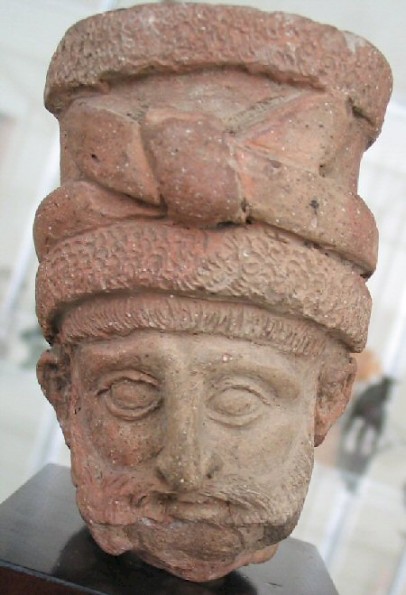Artabazus (1)
Q347628Artabazus (Elamite: Irdumasda; Persian Artavazdâ?): Persian nobleman, member of the Pharnacid house, who held various commands during the first half of the fifth century.

Artabazus was the son of Pharnaces, who had been the chief economic official of king Darius I the Great (r.522-486), who happened to be Pharnaces' cousin. Pharnaces owned large possessions in Hellespontine Phrygia and his son Artabazus must have seen this region when he was young.
In cuneiform texts from Persepolis, an Artabazus is mentioned as satrap of Maka. This is probably not 'our' Artabazus.
During the Greek expedition of king Xerxes (in 480-479), Artabazus first commanded the mounted archers from Chorasmia and Parthia, who are not mentioned again in the description of the war by the Greek researcher Herodotus of Halicarnassus.
The first year brought great Persian successes: Thessaly and Boeotia were conquered, Athens was captured. Xerxes left general Mardonius behind with a small army, which had as only task to secure the collaboration of Athens and to punish Sparta. The main part of the army was needed in Asia, where Babylon may have been revolting. (An earlier revolt, led by Bêl-šimanni and Šamaš-eriba, had been suppressed as recent as 484.)
Artabazus was one of Mardonius' minor commanders; he was sent to the Chalkidike in order to take Olynthus and Potidaea, Greek towns that were not yet subjected to the Persians. He took the first town, but his attack on the second remained unsuccessful. During the battle of Plataea (August 479), Artabazus commanded the Persian reserve, but was unable to prevent the Persian defeat; in the aftermath of the battle, he was able to bring a large part of the army in safety, an act for which he was highly esteemed.
Since 477, he was satrap of Hellespontine Phrygia, i.e., the northwest of what is now Turkey. It is possible that he negotiated with the leader of the allied Greek forces, the Spartan prince Pausanias. As satrap, he was succeeded by his son Pharnabazus (perhaps in 455), who is hardly more than a name. However, he continued the Pharnacid dynasty. A century later, Artabazus' family still held Hellespontine Phrygia. His namesake and descendant Artabazus played a very important role during the war between Alexander the Great and the Achaemenid empire.
The first Artabazus is probably identical to the Artabazus who was involved in the war between the Athenians and Persians on Cyprus and in Egypt, and opened negotiations between king Artaxerxes I Makrocheir and the Athenians (450).